All Your Formula Feeding Questions Answered
From a Mom who both breastfed and formula-fed her first daughter, and solely formula fed her second daughter. I’m sharing my personal experience and answering all those formula questions along the way!
Are formula fed babies healthy? Am I putting my baby’s health at risk by formula feeding? Those were just a couple questions I had when trying to decide whether or not I was going to breastfeed or formula feed my second baby.
Deep down, I knew I didn’t want to go through the breastfeeding experience again. It just didn’t work for me. (You can see more about what ultimately made me decide to formula feed here).
In all the research I did, the simple answer to my main questions was yes – formula fed babies are still just as healthy as breastfed babies. Yes, breastfeeding has antibodies that formula doesn’t have. Therefore, it is stressed that breastfeeding can help improve your babies immune system.
However, formula milk is developed to duplicate breast milk as close as possible. It will never be exactly the same, but it still contains all the nutrients your baby needs to help them develop during this crucial period.
I did a ton of research when trying to make this decision and in this post, I share with you:
- my experience with formula feeding my second daughter
- answers to some popular questions about bottle feeding
- the pros and cons to formula (bottle) feeding
I know this is a subject people feel very passionate about. I just want to make it clear that I’m not here to say one way is better than the other. In fact, the American Academy of Pediatrics (AAP), the American Medical Association (AMA) and the World Health Organization (WHO) all say that breastfeeding is the best option. I completely agree and don’t want anyone to think that I’m putting down breastfeeding in any way. In fact, I actually feel very much the opposite.
I have a tremendous amount of respect for moms who push through the difficulties that come with breastfeeding. I know what it takes because I’ve been there. Breastfeeding my first daughter was tough and interfered with me being the best mom I felt I could be. It doesn’t help that I struggle with mental health issues, which played a big part in the whole experience.
That’s the thing – some moms physically can’t breastfeed. Some can, but choose not to for a variety of reasons.
My personal opinion is that fed is best. I believe that only you, the mother, can decide what is best for you and your baby. I hope that we can stop making mom’s who choose to formula feed feel like less of a mom or feel guilty for their decision. If it’s a healthy alternative to breastfeeding, then why is there still so much stigma surrounding it?
I’m not sure what the answer to that question is. All I know is what my experience was and the pressure to breastfeed was still just as strong the second time around.
However, my baby will be a year old this October and she couldn’t be healthier.
This doesn’t mean that every single baby that’s given formula will be healthy, but you could also say the same about breastfed babies. There are many factors that play into a baby’s health, aside from just what they’re eating.
One of the facts the AAP states, is that babies who are breastfed for at least the first six months are less likely to be obese. My daughter has consistently been in the 50th percentile for weight since birth. She is average, not small and not obese either. In fact, my first daughter (who I breastfed) was on the obese side and typically weighed in the 80th percentile range.
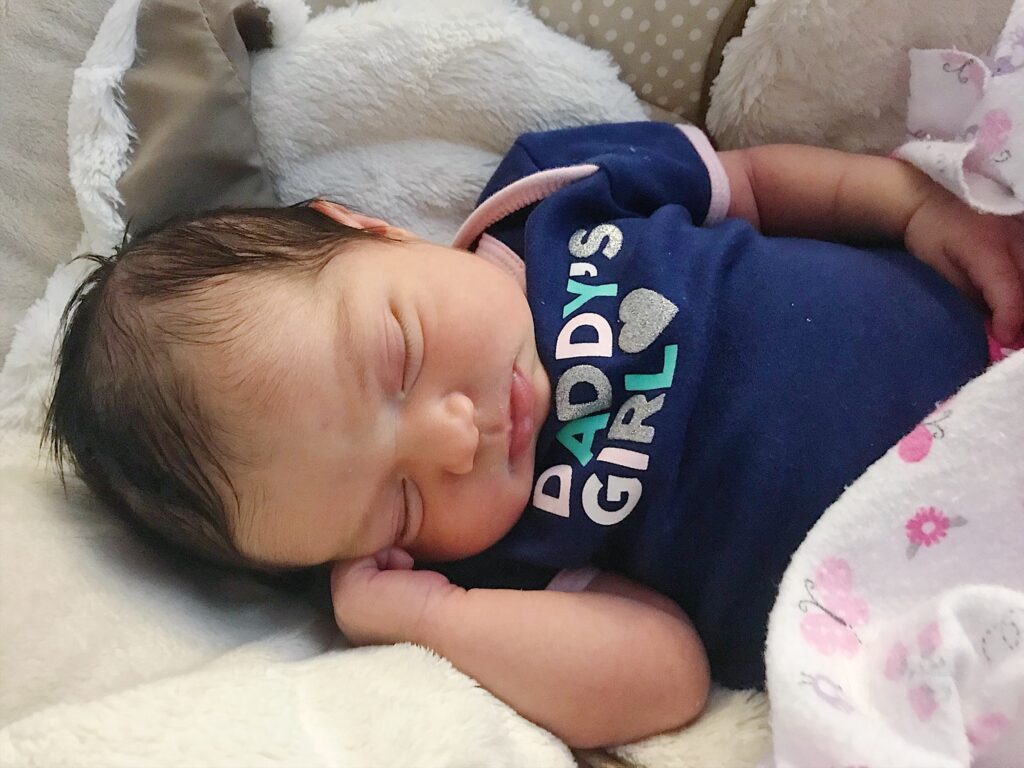
It’s also been stated that breastfed babies tend to be smarter than formula fed babies. However, in a recent study published by the AAP, they looked at children ages three and five and collected information on their problem behaviors, vocabulary and cognitive abilities. Some of these children were breastfed and some formula fed. The outcome – at age five, there were no significant differences between the two. (You can read more about this study here.)
Here are some popular questions people have regarding formula feeding:
1. What type of formula should I use?
There is a wide variety of different types of formula and formula brands out there. There are soy, organic, anti-colic, the standard cow’s milk, etc. The good thing is that formula is highly regulated and usually generic is just as good as the brand names. Most doctors recommend starting out on cow’s milk and making adjustments from there, if needed. (For most babies though, cow’s milk is just fine.)
Soy milk is plant-based and usually a good option for vegan families. Some doctors will recommend switching to a soy based formula if you’re little one is having issues with their original formula. However, it is best to talk to your pediatrician before you start switching your baby’s formula. Usually their fussiness is the sign of another problem that is completely unrelated to formula, such as infant acid reflux (which our baby had).
Organic formula is made up of ingredients that don’t contain pesticides, herbicides, or other potentially harmful chemicals. The big downfall to organic formula is the cost. It is quite a bit more expensive than cow’s milk formula.
We tried organic with our first daughter after I stopped breastfeeding and it made her horribly constipated, to the point where she would scream when she had to go to the restroom. If you choose to go the organic route, I recommend doing some research. There are many different brands and I would make sure that what you choose is not one that commonly causes constipation.
Anti-Colic / Gentlease formula is a cow’s milk base but promises to ease troubles associated with gas, fussiness and crying. I’ve heard some parents say this formula made no difference and others that say it helped their baby tremendously.
For my baby, we used the Enfamil Gentlease Ready Made formula for the first few months since we found that seemed to work best for her and her reflux issues. (For a more detailed post on her reflux story and what ultimately worked for her, you can check out that post here.)
2. ) What kind of bottles should I use?
This can be a bit of trial and error. Every baby is different. My first daughter had no trouble bottle feeding at all and we used the Phillips Advent baby bottles which were just fine for her. She never had any tummy troubles so a standard bottle worked well.
However, since our second baby suffered from bad infant reflux in the beginning, someone suggested the Dr. Brown’s anti-colic bottles. They made a huge difference! You could really tell how much it helped reduce the amount of bubbles that made their way into the nipple. We are still using them to this day, ten months in.
3.) How do I clean and sterilize the bottles?
When you first purchase a set of bottles and/or nipples, you need to sterilize them first. You only have to do this once, not every time you use them (thank goodness). 🙂
To sterilize them, you can either place all the parts in a pot of boiling water for a few minutes. You can also wash them and run them through the dishwasher as long as you run it through a hot water cycle. After you have sterilized everything once, you should be okay. After each use of the bottles and nipples, you can simply wash them with warm, soapy water.
4.) What’s the difference between powder and liquid (ready made) formula?
The difference is exactly what it sounds like. Powder formula is a powdery substance that you need to mix with water and shake well to prepare.
Liquid (or ready made) formula is formula that has already been mixed together. You don’t need to add water. I used to wonder why people would use this option since it’s a bit more expensive and then I found out.
We realized that liquid formula seemed to go down much easier for my second daughter than powder formula. We can only assume it’s because there are much less bubbles in the liquid formula since it has had the chance to sit and those bubbles dissolve.
During the first few months when her reflux was really bad we had to use the Enfamil Gentlease Ready to Use formula. Since the liquid formula is more expensive though, we switched to powder as soon as our daughter’s stomach got a bit stronger and could handle it better.
5.) How long is a bottle good for after it’s prepared?
Once you prepare a bottle, you either need to feed it to your baby immediately or you can place it in the refrigerator for up to 24 hours. This was news to me! I only found this out with our second daughter. I always thought you needed to use it as soon as you make it but nope! You can make bottles ahead of time and have them ready to go when baby is hungry (as long as it’s been made within the last 24 hours and kept in the refrigerator).
6.) Do I need to warm the bottle?
This depends on your baby. Both of my girls never needed their bottles warmed up. They were okay with either room temperature or cold bottles (out of the fridge). I have had so many comments from people surprised that I will give my baby a cold bottle but it is completely safe.
Warming up bottles doesn’t do anything to the formula. We really only started doing this since it’s what we thought babies preferred. It also feels a little more like breast milk when it is warmed up.
If you do choose to warm up the bottle, definitely do NOT use the microwave. You can heat up a cup of water only and then place the bottle in the water and let it sit until it’s warm enough. Make sure to test it once it’s done to ensure it did not get too hot for your baby.
7.) How much formula should my baby be drinking?
I came across an awesome blog with the best information to answer this question. Check out Carolyn’s blog at fennellseeds.com and read her post here about formula feeding guidelines.
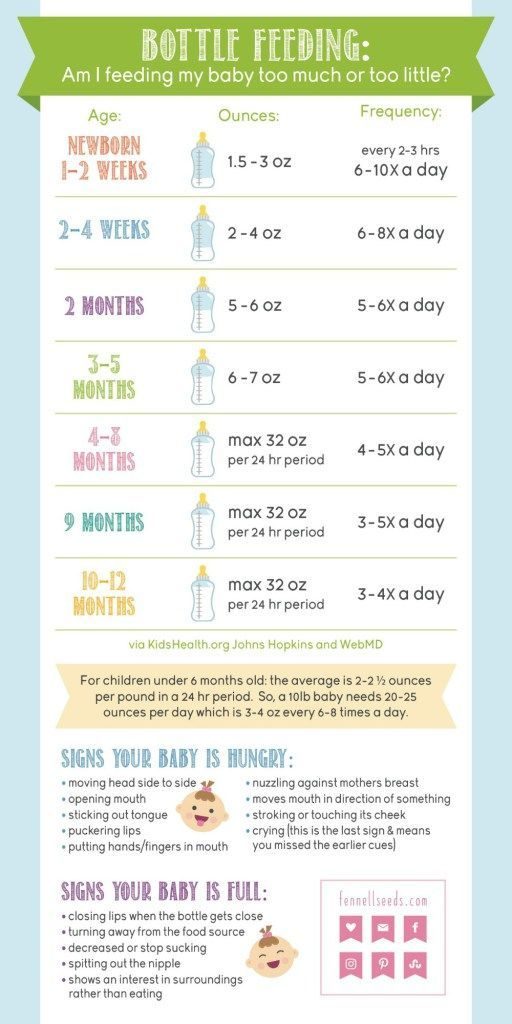
If you do decide to formula feed, here’s some information I think you will find helpful. In my experience, here are the pros and cons to formula feeding:
PROS
1.) YOU DON’T HAVE TO WORRY ABOUT WHAT YOU PUT IN YOUR BODY
When you’re pregnant, you spend almost ten months having to limit what food, drinks, medication, etc. that you put into your body. When your breastfeeding, that doesn’t stop. You still have to be very careful about what you are eating or drinking because it could be passed along to the baby in the breast milk.
I know some people think this is a selfish reason not to breastfeed, but it took so much pressure off of me this time around. I actually don’t even drink alcohol but it was nice to not have to worry about the pain medicine I was taking after my C-section as well as being able to eat whatever I wanted.
As moms, we feel so much guilt over everything and this is just one area where I didn’t have to feel guilty. I could eat what I wanted knowing that it was not going to have any effect on my baby.

2.) YOU CAN STILL BOND WITH BABY DURING FEEDING
I have often heard that by formula feeding your baby, you lose out on the bonding experience that comes with breastfeeding. To me, that’s BS. I’ve now done both and feel like I bonded with each of my girls the same. It doesn’t feel like I bonded any more with my first daughter just because I breastfed her.
I will say that the experiences are different. Breastfeeding is absolutely different than bottle feeding your baby. However, when I decided to bottle feed my second baby, I knew that when I fed her, I was going to make every effort to hold her just as close to me and look her in the eyes the same way I did with my first daughter. The bonding wasn’t that different – just the experience itself was because one was attached to my body and the other wasn’t.
Bottom line – I feel like you can still bond with your baby if you bottle feed. It’s a matter of how you do it and the effort you take to make it a bonding experience. For example, never leave your baby alone with the bottle propped up. Also, try to hold them close and in almost the same position as if you were breastfeeding. This helped me to still feel very connected to my daughter.
3.) MUCH LESS STRESS / FORMULA FEEDING IS A LITTLE MORE FLEXIBLE
Being that I have severe anxiety, I have a tendency to want to plan everything. With breastfeeding, I felt like I could never get a good feel for how much my baby was drinking. I also felt like I had to be at my baby’s beck and call in regards to her feeding. I could never just relax and not knowing when she would need to eat caused me even more anxiety. For me, my experience with breastfeeding was that you can’t really plan on when it will happen.
With formula feeding, you know exactly how much your baby is drinking. You can also plan for it a little more easily. For example, once my daughter is finished with a bottle, I immediately make the next one since a prepared bottle can stay in the fridge for up to 24 hours. This way, when she is ready to feed again, a bottle is already ready.
4.) PEOPLE CAN HELP WITH FEEDING
This was huge for me. After you have a baby, your hormones are all over the place. I suffered from depression right after our second daughter was born and I was so thankful to have more help this time around.
It made a big difference knowing that anyone could help me feed my baby. I still chose to do it as often as possible because I do believe it’s a good time to bond, but it was a really nice feeling knowing that I didn’t HAVE to – that technically anyone could feed her.
5.) NO PUMPING
I was NOT a fan of pumping, and I had to do it often due to how much milk I was producing. It is uncomfortable, requires extra time and then there’s the process of washing all the parts. I’ll just be blunt here and say pumping was not my favorite part of breastfeeding.
I was thankful to have the option to pump but the actual process of it isn’t something I miss at all. It’s tough when you go back to work and have to pump every so often. It just wasn’t convenient for me and added to my stress.
CONS
1. ) COST
I think this one is no surprise – formula feeding is definitely the more expensive option. Breast milk is free and available to you for as long as your baby needs it. Right now, we spend around $100-$150 a month on formula. That’s a lot of money considering all the other added expenses that come with a baby.
For me, this is probably the biggest disadvantage.
2.) WASHING BOTTLES
I wasn’t even sure if I should list this as a con. With breastfeeding, I had to use a pump daily and cleaning the pump and all it’s parts was not easy. It was a huge pain.
However, with bottle feeding, you now have bottles to wash. I personally think bottles are easier to wash than a pump but bottles need to be done much more often (as in multiple times a day). It’s definitely not my favorite part of formula feeding, but it’s also not that bad either. You get used to it and I just wash them throughout the day so they don’t pile up for me to do all at once.
3.) IT’S NOT AN EXACT MATCH TO BREAST MILK
Formula doesn’t match breast milk 100%. They have come very close in duplicating the complexity of breast milk but it is not the exact same so it lacks the antibodies found in breast milk. It’s also not as digestible for newborns.
So far, my experience with solely formula feeding my second daughter has been positive. If by some chance I had a third baby, I would formula feed her as well. It’s just what ended up working best for me and my family.
What are your thoughts? Did you breastfeed or formula feed? And if you have any other questions about formula feeding, please let me know!
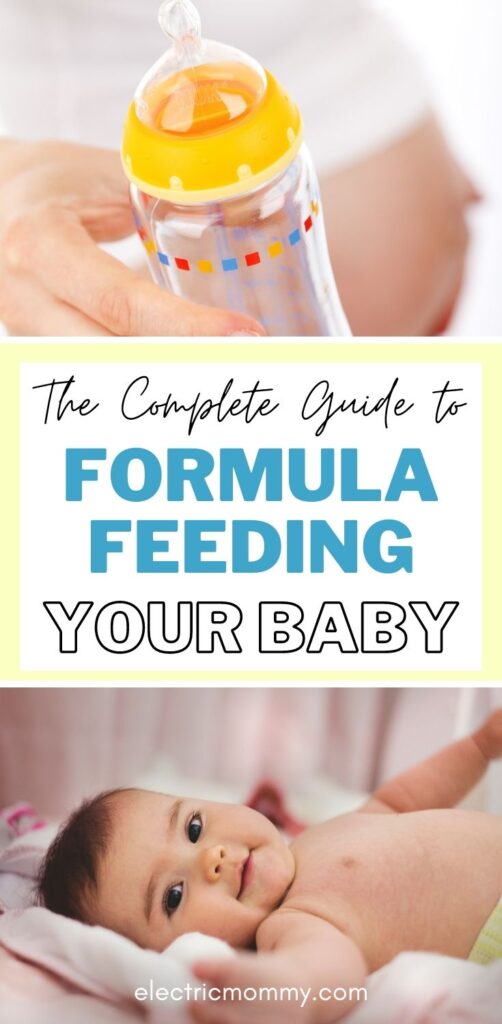
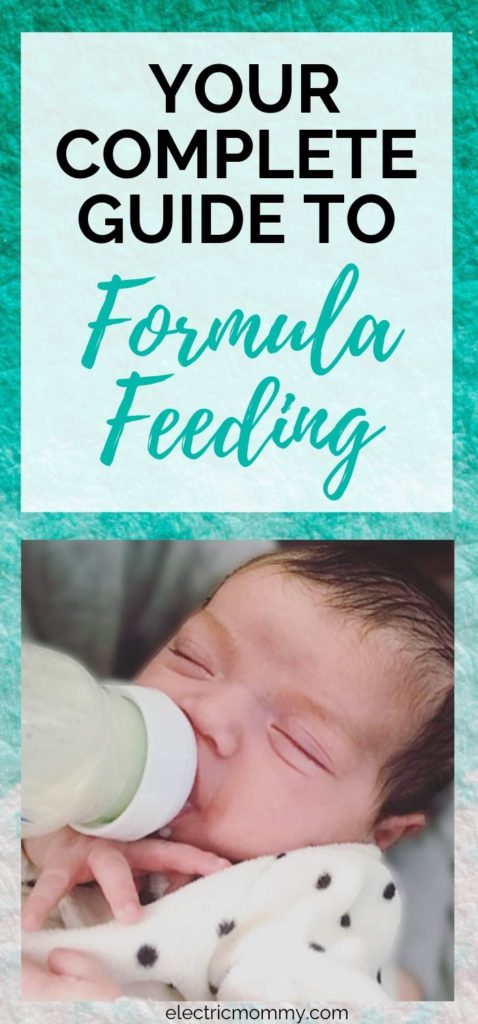
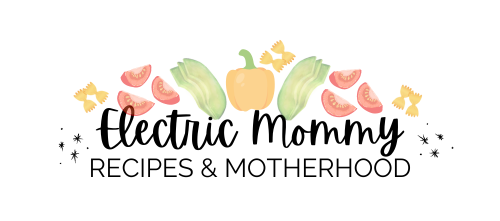



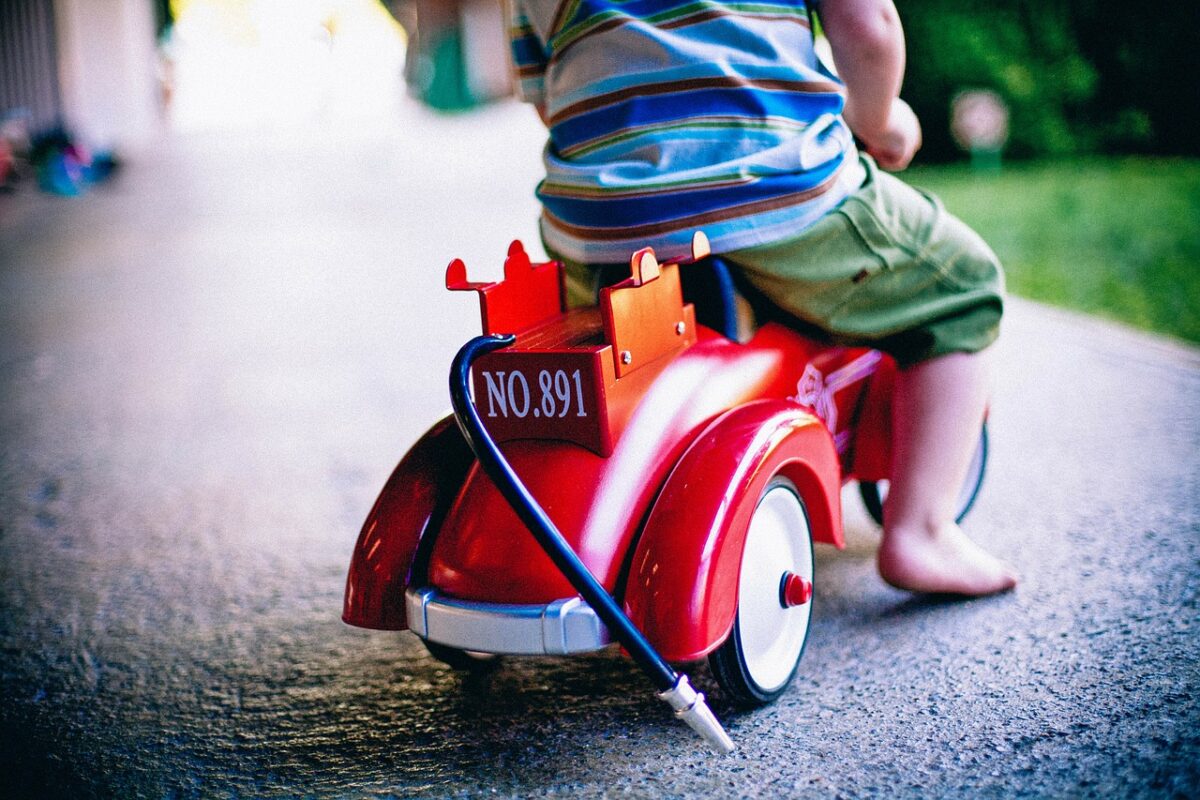

This really hit home for me. When I had my son getting him fed was a nightmare. I tried breastfeeding and it hurt so so bad, he had trouble latching on, it was so difficult and I felt like I was going to have a nervous breakdown. My lactation consultant at Kaiser failed miserably. She told me if I didn’t breastfeed I wouldn’t bond with my baby. So I kept on with it and hated every second of it. I literally dreaded feeding time. I finally got a doctor to listen after a c-section incision check and she had me stay an extra day. Thank goodness for her because things were getting really stressful. I stopped breastfeeding, agreed to try pumping and use formula. Unfortunately the pumping was another bad experience. More pain and I wasn’t producing enough milk. My nurse became cold, rude and distant. When she first brought me the pump she threw it on my bed, and said “Here,” and left. She didn’t explain anything to me or help me. I felt really lost. If I have another baby I will be going straight to the formula. I will not miss out on enjoying my baby again because I’m failing at feeding him.
Oh my gosh! I am so sorry to hear about your experience! That’s awful. To be honest, I was afraid of that happening in the hospital to me as well, once I knew I wasn’t going to breastfeed. Thank goodness most of my nurses were a little more understanding but it’s still so crazy to me how bad we can be made to feel for not breastfeeding. It’s especially crazy in these times where formula is better than ever. Just so people don’t come after me, I absolutely agree that breast milk is best but there’s also NOTHING wrong with formula. I fully believe it should be up to the mom and the mom only. Well I’m sorry again to hear about your experience! I hope you are doing well today and yes, if you have another baby and choose to formula feed, don’t let anyone make you feel bad for it. I have a healthy baby and absolutely no regrets. Good luck mama and thank you so much for taking the time to read this! 🙂
This is a wonderful post. So much controversy these days and formula is great too, from a mom who supplemented.
Thank you so much!
Yes, yes and yes!! I have also done both and there is no single choice that is best in every and all situations. I’m so grateful I had the ability to pump milk for my oldest when he couldn’t latch and I am so, so thankful that we have formula available to us that has fed and nourished our youngest, who joined our family through adoption. I actually bonded much faster and easier with our youngest because I didn’t have the pressure of nursing/breastfeeding that I did with my oldest. It was quite freeing and he is such a healthy little boy!
I appreciate you sharing your experience! And you are so right – there’s no one choice that is better than other’s. I love hearing that you were still able to bond a lot with your youngest. I hate when I hear people say that you lose that bonding experience with formula feeding because I just don’t agree. I also bonded very well during the feeding process with my second daughter. Well thank you for reading and for your comment! Wishing you all the best 🙂
Thank you very much for sharing this post now have a 3 month old baby and unfortunately I couldn’t breastfeed I tried so hard for that and I failed even now when I’m making formula I feel guilty because while I’m pregnant also I only needed to give my baby to Brest milk but I couldn’t do that i don’t know why it happened to me and I was really worried about my babies health because of I’m only give her formula and each and every article only says breastfeeding is the best thing for babies. After reading your article I feels so great at least one mother saying giving formula is not bad thing it’s such a relief to see at least one mom out as me
I appreciate this post so much ! Getting ready to have my second daughter and I have no desire to breastfeed again . It was so traumatic with my first , painful and cried every night . Ended up with horrible mastitis within a few weeks and had to have it drained once a week for a month and a half to avoid surgery! I feel like I missed out on a large part of our bonding experience due to the mastitis, So I feel pretty strongly that I won’t lose that this time around just because I’m choosing formula! It sucks there is so much pressure to breastfeed, especially in the hospital. Love your post , and thank you for the reassurance that my decision is 100% okay! 🙂
Thank you so much! And thank you for sharing your story! I feel so strongly that we shouldn’t have to feel so much judgement about this. I hope you have a smooth delivery and that you and baby are healthy! <3 Meghan | Electric Mommy